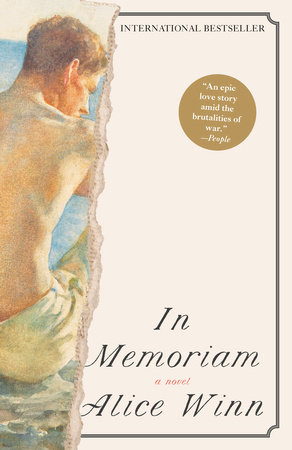More on this book
Community
Kindle Notes & Highlights
because the silence was heavy with something.
But never to him.
He wondered what it was like to be someone like Ellwood, who contributed to the beauty of a place, rather than blighting it.
Ellwood pressed his leg against Gaunt’s and grinned as Pritchard tried to wrestle West’s bottle from him. Gaunt leant his cheek against the cool porcelain and smiled back.
“Hates everything,” said Pritchard, “except for Greek, and you.”
You are the poetry.
Henry?
there’s no one else he’ll listen to.”
The Hague Convention sought to make war more humane. We had reached a point in history where we believed it was possible to make war humane.
He looked at Ellwood as if he had never seen anything like him before.
But occasionally, his eyes met Ellwood’s, and something in his face softened.
Anyway, Gaunt already knew that Ellwood loved him. Because of the sonnets.
Gaunt was woven
into everything he read, saw, wrote, did, dreamt. Every poem had been written about him, every song composed for him, and Ellwood could not scrape his mind clean of him no matter how he tried.
In the hypermasculine atmosphere of war, they were not overly concerned with manliness.
If Ellwood were a girl, he might have held his hand, kissed his temple. He might have bought a ring and tied their lives together.
“Better than anyone else,”
He was alive. He was alive.
“I wish I could tell you in my own words,” he said. “But I can’t. And you don’t want me to. ‘Love is my sin, and thy dear virtue hate, / Hate of my sin, grounded on sinful loving—’
Gaunt didn’t care; he would die, he knew he would, and Ellwood was looking at him as if he was the world.
“Do you understand?” “I—” “Do you understand?”
I hope Ellwood is alive, Gaunt blinked back.
You bleed to death in all my dreams.
“He thinks I’m dead! I can’t hang about waiting for peace to break out, if it ever does, while he…”
Ellwood was at the other end, and Gaunt would not stop until he reached him.
“He can’t have done,” said Maud. “It’s all he read in the holidays.”
Gaunt turned to him with an expression that seemed to hold a thousand things at once.
On Divisional Rest, Gaunt had once stroked his eyebrow—the one that no longer existed—and called him “handsomer than ever.”
“Don’t go.” “I won’t,” said Gaunt. “I’m not going anywhere.”
Ellwood stirred slightly, alive, vivid, lovelier than ever. Gaunt closed his eyes.
Gaunt smiled through a long exhale of smoke, hope coursing through him. “Yes,” he said.
“I love you,”
Gaunt had always looked at him like that, as if Ellwood’s flaws were qualities.
“Not about you,”
“I think,” said Gaunt, watching her set the dollhouse to rights, “that if he gave me the smallest hope—I should wait forever.”
“No,” said Ellwood, steadily. “I haven’t.”
Forever, if you want.”
“I love you,”
“No, Henry, I,” he said, “I—‘I cannot heave my heart into my mouth.’ ”


